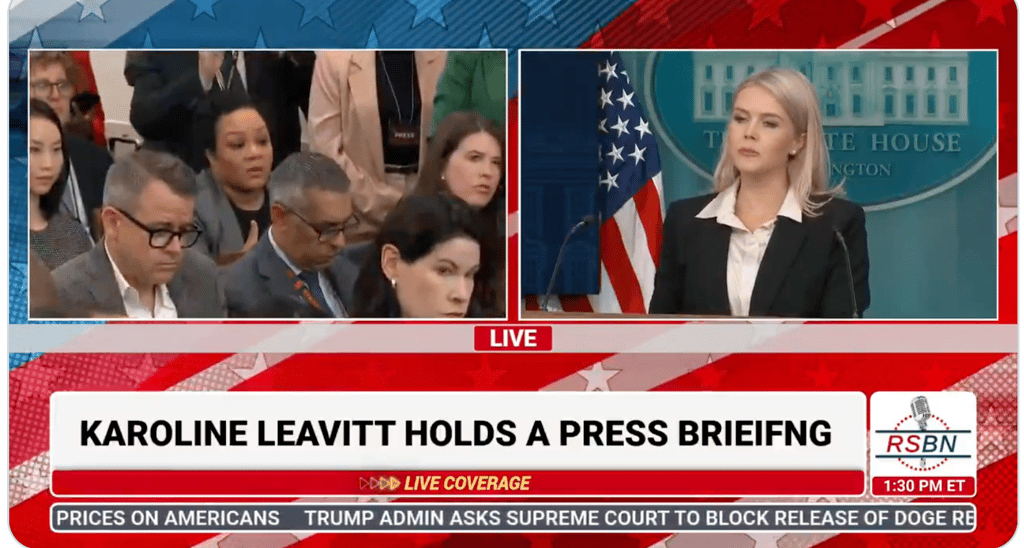The White House, White Crosses, and the Danger of Misinformation
5/23/20253 min read


The White House, White Crosses, and the Danger of Misinformation
In a recent White House press briefing, Karoline Leavitt, the Press Secretary, found herself defending President Trump's use of a video that claimed to depict the burial sites of over 1,000 white South African farmers. The video, part of a narrative suggesting a "white genocide," was quickly debunked. It turns out the crosses shown were not graves but symbolic markers at the Witkruis Monument, a site commemorating farm attack victims since 1990, including both white and black farmers. This incident is a stark reminder of the dangers of misinformation and its impact on public discourse and international relations.
The Video and the Narrative
The video in question, shared by Trump, was intended to illustrate the plight of white farmers in South Africa, a narrative that aligns with a long-debunked conspiracy theory about a "white genocide." However, the Witkruis Monument, as detailed on Wikipedia, features 3,000 symbolic white crosses, with only 20 red crosses representing local deaths. These crosses are not graves but symbols maintained by private donations since 2004, reflecting a community effort rather than evidence of racial persecution.
The Press Briefing Exchange
During the briefing, a reporter challenged Leavitt on the validity of the video, questioning why Trump would present unsubstantiated information. Leavitt's response was defensive, asserting that the video showed "images of crosses in South Africa about white farmers who have been killed and politically persecuted because of the color of their skin." She dismissed the line of questioning as "ridiculous," despite the factual inaccuracies.
This exchange is not isolated. Reuters reported on Trump's false claims during a meeting with South African President Cyril Ramaphosa, where similar assertions were made and rebuffed. The pattern of using misinformation to support political narratives is concerning, especially when it involves international diplomacy and historical inaccuracies.
The Broader Implications
The misuse of the Witkruis Monument in this context is particularly troubling. The monument, a project led by figures like Lita Cross Fourie until her death in 2023, aims to remember all farm attack victims, not to propagate a racial agenda. By misrepresenting it, the Trump administration not only distorts the truth but also risks exacerbating racial tensions both domestically and internationally.
Moreover, this incident highlights a broader issue of how misinformation can be weaponized. The "white genocide" conspiracy theory, despite being debunked, continues to circulate among far-right groups, influencing public opinion and policy discussions. It underscores the need for rigorous fact-checking and responsible communication from leaders.
The Role of Media and Public Discourse
The role of media in this scenario is crucial. Journalists, like the one who challenged Leavitt, play a vital role in holding power accountable. However, the response from Leavitt suggests a troubling trend where questioning misinformation is met with defensiveness rather than transparency. This can erode public trust in both the media and government institutions.
Public discourse, too, suffers when leaders prioritize narrative over truth. The danger is not just in the immediate misinformation but in the precedent it sets for future communications. When false narratives are defended, it normalizes a culture where facts are secondary to political agendas.
Thought Questions
How can we ensure that public figures are held accountable for spreading misinformation, especially when it impacts international relations?
What steps can be taken to educate the public about the dangers of conspiracy theories like "white genocide," and how can we counteract their influence?
In an era of rapid information sharing, what role should media play in verifying and presenting facts, and how can they maintain credibility in the face of political pushback?
This incident at the White House is a call to action for all of us to prioritize truth over narrative, to question what we hear, and to demand accountability from our leaders. The stakes are too high to allow misinformation to shape our understanding of the world.
hello@boncopia.com
+13286036419
© 2025. All rights reserved.